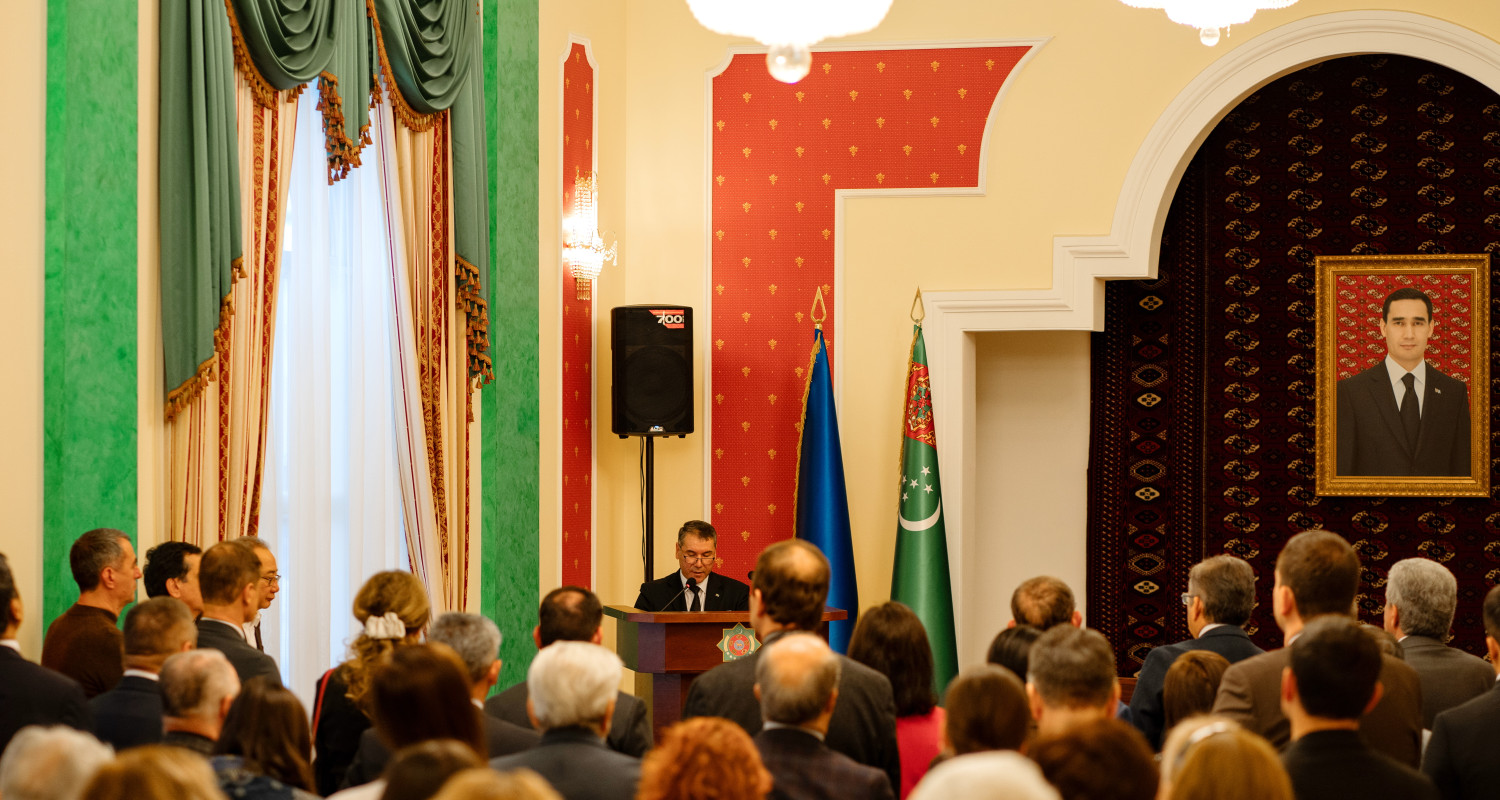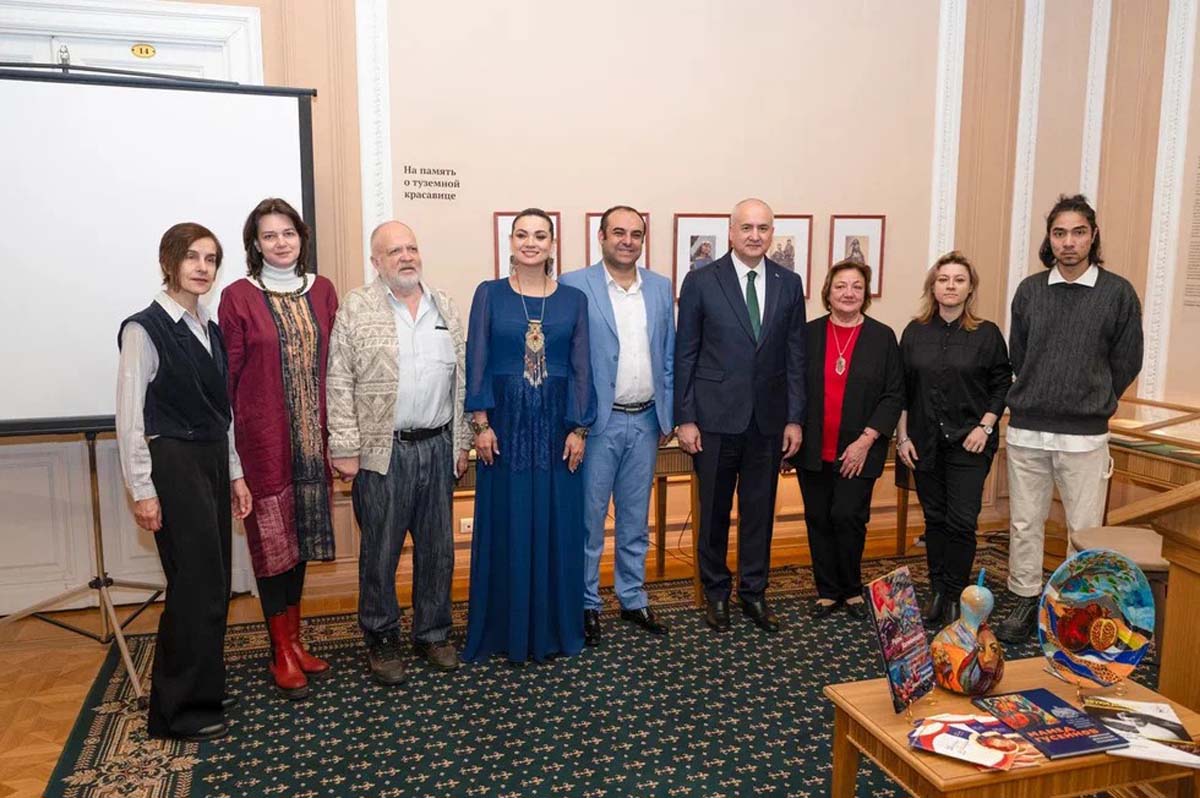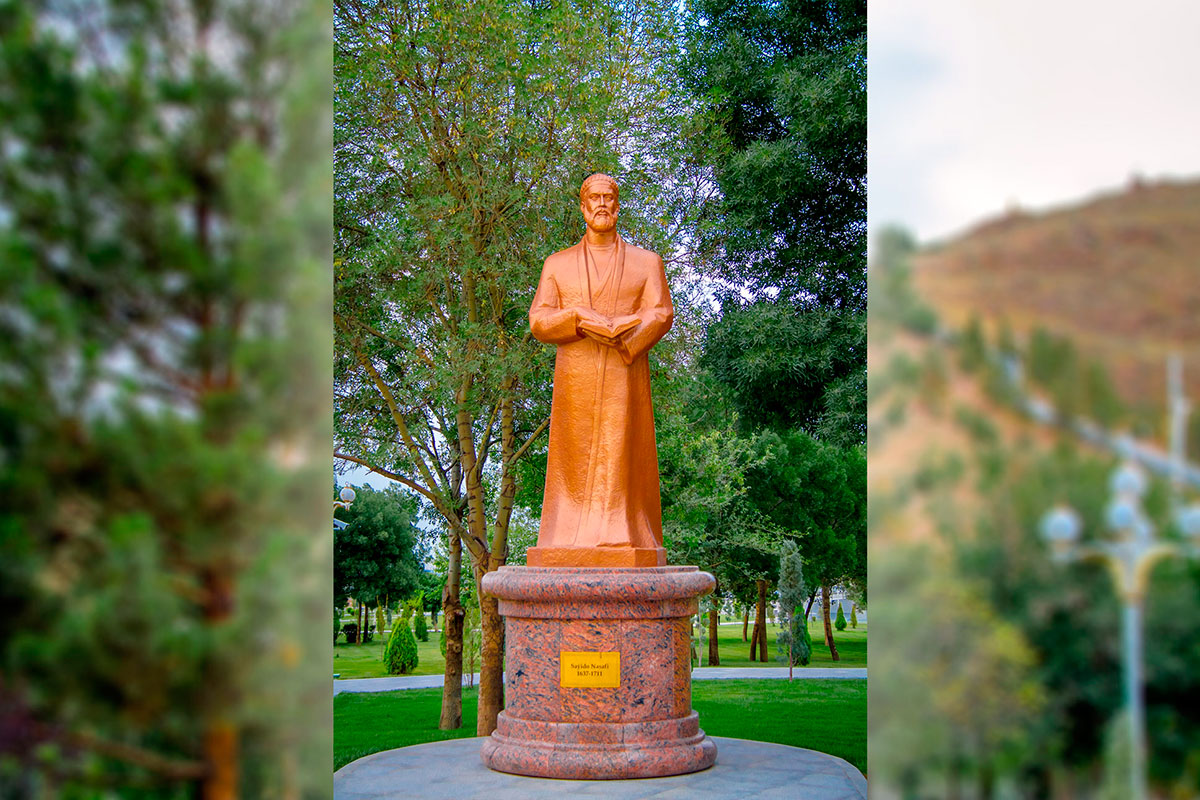Throughout this year, creative collectives have been closely connected with the poetic legacy of Magtymguly Fragi, including in their concert programs his works set to music, inspired by folk legends and ancient destans. They feel a special mental connection to his poetic dreams and philosophical views in a year when our country, the Turkic world of Eastern peoples, the states of the Central Asian region, and the enlightened global community are preparing to celebrate the 300th anniversary of the birth of this great son of Turkmen land.
The celebration of this significant date is included in the UNESCO List of Commemorative Dates, affirming the special value of the great thinker's creativity, its significance and role in world culture. At the same time, various cultural and educational events are taking place in several foreign countries, including exhibitions, lectures, and meetings of cultural figures. Monuments to the great poet can be found in different cities around the world, and new ones will be installed this year. The largest number of sculptures is located in Turkmenistan and the CIS countries, as well as in Iran and Turkey. Streets and avenues are named in honor of the Turkmen poet, and there are museum exhibitions not only in his homeland but also abroad.
Aman Meredov, head of the educational department of Children's Art School No. 1 under the Department of Culture of Ashgabat, emphasized about the contribution of representatives of the country's music community to the celebration of this commemorative date and the entire year:
"The year 2024, held under the motto 'Fount of Wisdom of Magtymguly Fragi', unites all generations of musicians, including the youngest ones. Concerts of students from children's art schools are particularly significant, continuing the series of cultural events that started in the country last year. In the capital and velayat centers, the Ministry of Culture has planned art exhibitions, events featuring music groups, pop artists, masters of oral folk art, and professional reciters who perform Magtymguly's poems in the original and in translation into Russian and other languages. There will be meetings of historians and cultural experts. Folklorists and ethnographers of universities prepare interesting lectures for student youth on the history and development of Turkmen literature, explaining the role that the talent and devotion of one of the prominent minds of that era played in the development of Turkmen language and cultural heritage. Museums are actively working on various projects. Theatrical performances combining Turkmen melodies and verses of the poet will be a gift for theater lovers. In short, there are many exciting cultural events expected for admirers of Fragi's talent."
The shining light of Magtymguly's creativity has warmed the hearts of many generations of Turkmen people and lovers of poetic verse from the medieval East, including compatriots living far away in the past and present, as well as numerous admirers from other nations, to whom the poet became clear and close. "Divided" is the literal translation of his literary pseudonym, expressing the bitterness of being separated from loved ones and homeland. However, Magtymguly's heart was always connected to his native land and its people, who carried the memory of this talented countryman through the ages. The gratitude of his descendants is expressed through numerous publications of his works that have withstood the test of time. They are eternal, filled with guidance for future generations. Three hundred years separate us from the time when Fragi lived and created, and during this time the world has undergone drastic technological, social, technical and cultural-ethnographic changes. However, the truthful and poignant thoughts of this great man are still understood and resonate in the minds of those living today. They serve as a tuning fork for our souls, guiding us towards goodness, justice, and loyalty to our homeland. The poet's dreams, aspirations, and hopes find resonance in the hearts of our contemporaries in many countries.
The poet's works have been collected, studied, published and translated into many languages over the course of several centuries. The state, scientific community and concerned Turkmen people are reverent about the preservation of the creative heritage of Fragi inside the country and documentary evidence found in foreign archives. They also support research in this field, donate ancient artifacts of his era to museums. Thus, the small museum in the poet's homeland in the village of Gerkez consists mostly of gifts from Turkmen leaders who visited in the past century.
In Turkmenistan, the Magtymguly International Prize in the field of Turkmen Language and Literature was established. In 2014, the Magtymguly Fragi Medal was awarded for significant contributions to the dissemination and study of the poet's creative legacy. Scientific research has uncovered previously unknown stanzas of well-known poems, which were omitted in translation due to their difficult-to-convey meaning. Medieval material containing anonymous verses is also being studied, raising the possibility of discovering poems attributed to the poet. Composers have composed pieces inspired by Magtymguly's works over the years, and singers-bakhshis have transformed many of his works from poetic lines into songs while preserving their structure. It is worth noting that even in the 20th century, great Turkmen musical compositions were dedicated to the name of the poet, such as Veli Muhammetov's symphony "In Memory of Magtymguly" and Mamed Guseynov's concert mono-opera "Monologues of Magtymguly Fragi" composed in 2013. These works take on new meaning and significance for performers and listeners in the present year.
Many would agree that the language of the poet is familiar from childhood, and his invisible presence in the lives of many compatriots is a natural and enduring part of their existence. As one grows older, the depth of his verses becomes more apparent, and the volumes of his poetry, cherished in every family, become even more precious. His poignant lines are like memories of a father's house, where the cherry blossoms in the old courtyard in spring. Magtymguly is the soul of the Turkmen people, and the memory of him is everlasting among the people.








